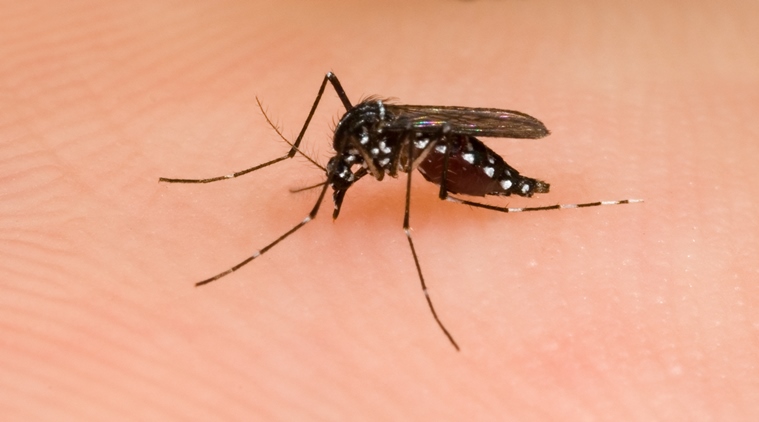Stay updated with the latest - Click here to follow us on Instagram
BMC forms special task force to identify, destroy mosquito breeding spots
The Brihanmumbai Municipal Corporation is tying up with NGOs and has employed 368 sanitation workers to identify mosquito breeding spots and clear them.
 The civic health department conducts anti-malaria and anti-dengue campaigns each year
The civic health department conducts anti-malaria and anti-dengue campaigns each year
Every year, with the onset of monsoon, Mumbai witnesses a sudden spike in malaria and dengue cases. This has forced the Brihanmumbai Municipal Corporation (BMC) to form a special task force to identify and destroy mosquito breeding spots across the city. The civic body is tying up with NGOs and has employed 368 sanitation workers for this. Besides the anti-malaria and anti-dengue campaigns that the civic health department conducts each year, a task force has been formed for the first time to identify mosquito breeding spots and clear them.
“By forming this task force we will be able to wipe out and destroy mosquito breeding spots on a war footing. The sanitation workers in the task force will be paid Rs 567 daily. To start with, we will deploy the task force in areas where breeding spots were found last year,” said a senior official of the BMC’s health department.
The areas include Santacruz West, Khar Danda, Tulsiwadi Grant Road, Lower Parel, Vada chawl, Satyaki Nagar, Hanuman Gully, Govandi, Shivaji Nagar, Gautam Nagar, Borivali East, Kajupada, Devipada, Borivali West and Shimpoli.
After inspection of these areas, the civic body will issue notices to owners of the premises and ensure that the breeding spots are made clean, officials said. Besides, this year the civic health department will be focusing on areas in F South (Parel), G South (Lower Parel, Elphinstone) and E wards (Byculla, Mazgaon) that have seen a lot of constructions in the past few years and have a large number of ongoing construction projects that could become breeding spots for mosquitoes. “Since the population of these areas are high, and as many commercial buildings are located here, we will have a special focus on these places,” said Dr Santosh Revankar, Joint Executive Health Officer of the BMC health department.
Revankar said he and his team have been urging residents of the three wards to take special precautions, while the team will also visit these construction sites repeatedly to alert the developers and supervisors to ensure that there are no mosquito breeding spots on the site.
“Keeping up with the national campaign, the civic health department aims to make Mumbai ‘Malaria free’ by 2030. Under this we are identifying areas where we can improve and adopt measures in which we can curb spread of the two diseases. Accordingly, the doctors and officials of civic run hospitals too have begun precautionary measures on their premises,” said Revankar.
According to the civic body’s data for 2017, 6,000 malaria cases were registered in Mumbai through the year of which 2000 cases of were detected only in September 2017. In October last year, the BMC moved court against users of 637 premises (commercial /residential) for allegedly not preventing mosquito breeding on their premises despite notices. The move was part of the BMC’s campaign to tackle the mosquito menace and curb spread of vector-borne diseases, including dengue and malaria.
The campaign will continue this year against those who ignore BMC’s warnings and notices. In 2017, BMC had collected Rs 22 lakh in fines from 11,237 households and commercial structures found to have not prevented mosquito breeding on their premises.
In 2016, the BMC issued notices to 4,986 government institutions, residential premises and private owners for allowing mosquito breeding. Data from the BMC insecticide department shows that after the notices were issued, fines amounting to Rs 7.81 lakh were collected between January and April, after prosecution of negligent institutions or private owners in court.
In 2015, the department issued 19,710 notices and collected fines of Rs 32.77 lakh.
As per rule, the civic body can act against erring individuals and buildings under Section 381 of the Mumbai Municipal Corporation (MMC) Act and impose a fine ranging between Rs 2,000 and Rs 10,000.







